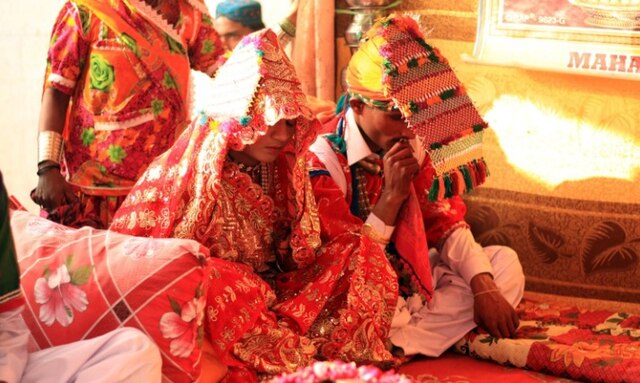Hindu Marriage Act’s Inactivity in Khyber Pakhtunkhwa Deprives 55,000 Hindus of Legal Marriage Status, Property Division, and Inheritance Rights
In Khyber Pakhtunkhwa, the inactivity of the Hindu Marriage Act has left around 55,000 members of the Hindu community without any legal recognition of their marriages. This has also made the division of property and inheritance rights a significant challenge.
The previous PTI government in Khyber Pakhtunkhwa passed the Hindu Marriage Act in 2017, after a wait of 70 years, to address issues related to Hindu marriages and property distribution. This development initially brought joy to the Hindu community, who believed their long-standing issues had been resolved. However, they were unaware that, while laws are passed, implementing their regulations can take 10 to 15 years. The Hindu Marriage Act also fell victim to this bureaucratic delay, with over seven years passing without its practical implementation.
Now, the Hindu and other minority communities have become active once again, seeking the revival of the Hindu Marriage Act in its original form. Meetings with provincial ministers are ongoing in this regard. The responsibility for framing the rules lies with the Local Government and Law Departments. However, both departments are treating the matter like a game of football, passing the file back and forth without reaching any conclusion.
Hindus living in Khyber Pakhtunkhwa can get married, but these marriages hold no legal status due to the absence of rules under the Act. A related issue is the division of property and inheritance. Without legal recognition of marriages, children born from such unions cannot claim inheritance rights under any law.
Pushpa Kumari, a Hindu rights activist from Sindh, highlighted that other provinces have resolved these issues by implementing the Act and its rules. In Balochistan, for instance, there are no problems regarding the Hindu Marriage Act or property distribution, as marriages there are legally recognized. Any issues that arise are resolved through the courts. However, the situation in Khyber Pakhtunkhwa is entirely different. Both Sindh and Punjab have already addressed this matter. Pushpa emphasized the urgent need for the provincial government to work on resolving this long-standing issue for the Hindu community, noting that Pakistan has a population of 2.5 million Hindus, of which 55,000 are directly affected by this problem.
Haroon Sarbdayal, a Hindu rights activist from Khyber Pakhtunkhwa, stated that this issue is not just about Hindus but concerns a part of society as a whole. Hindus are present in every district of the province in some form or number, so it is unjust to deprive them of their rights due to the inaction of the Act. He expressed hope that the government would resolve the issue, as various meetings have provided assurances.
Haroon further noted that, just as other provinces have activated the Hindu Marriage Act, Khyber Pakhtunkhwa will eventually follow suit. He also highlighted that Khyber Pakhtunkhwa is ahead of other provinces in many aspects, particularly in its treatment of minority communities, which sets an example. However, the challenges stemming from the inactivity of the Hindu Marriage Act have escalated, and there is no immediate solution other than implementing this Act.


